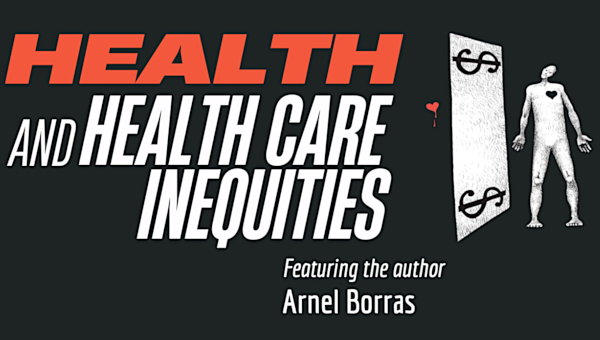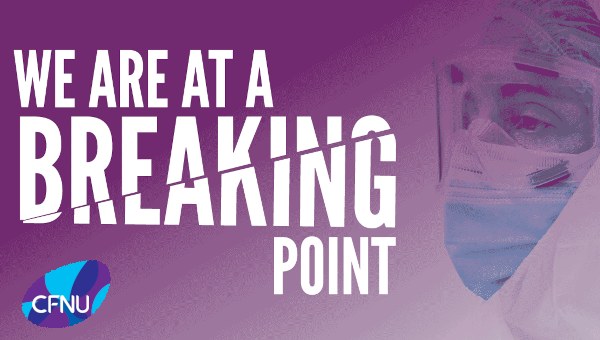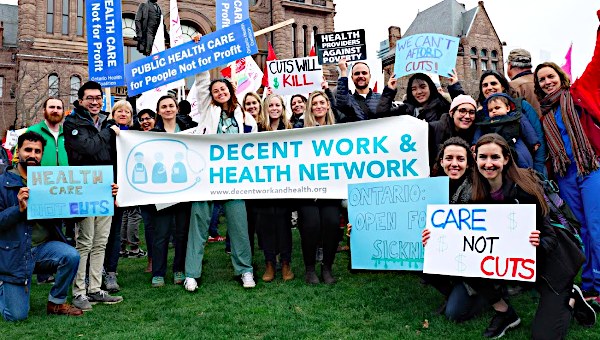Failure to Protect Essential Prisoner Workers Undermines Public Safety
The COVID-19 pandemic is spreading through federal prisons. As of December 30, the Correctional Service of Canada (CSC) has reported 1093 positive cases and three deaths among federal prisoners. The outbreaks show no sign of slowing down anytime soon.
Prisoners and advocates have called for action to combat the spread and keep prisoners and surrounding communities safe, including demands for decarceration and the placement of prisoners as a priority group for receiving COVID-19 vaccines. But prisoners are not only experiencing the pandemic as incarcerated people, they are also essential workers facing many of the same health and safety issues as vulnerable workers outside of prisons.

Prisoners perform much of the custodial and maintenance work in federal prisons and, beginning in April, prisoner workers have also been producing personal protective equipment (PPE), through the CSC’s prison industry program, CORCAN. This work is necessary to help safeguard prisoners, guards, and other federal government workers. Despite their essential work, prisoners have been forced to complain, beg, and engage in work refusals to ensure basic safety on the job.
Prison Work and Safety
The work of prisoners is essential to the day-to-day functioning of prisons. However, just as importantly, work and vocational programs are fundamental to the idea that prisons function to “rehabilitate” those imprisoned within them and are necessary to protect the public. Despite this, there is little evidence that federal employment programming effectively equips prisoners with the skills and resources needed to succeed in the labour market upon their release. In particular, CORCAN is routinely criticized as ineffective and antiquated in annual reports by the federal Correctional Investigator.
Regardless of its “rehabilitative” potential, the ongoing pandemic makes it clear that prison labour is essential, especially given increased cleaning needs and demand for PPE.
As HuffPost Canada has reported, prisoners made over 800,000 masks and over 32,000 disposable gowns as of December 19. In addition, prisoners have been tasked with cleaning up common areas in prisons and vans used to transport prisoners. These are spaces where the risk of exposure is very high, especially due to the fact that the spaces are enclosed, with poor air circulation. Due to the higher risk of work in these areas, proper provision of PPE is essential. While prisoners are locked up, it is incumbent on the CSC and CORCAN to ensure prisoner worker safety. But this has not happened.
There have been serious shortfalls, even through the second wave, which officials had months to prepare for. In a recent example, prisoners incarcerated in Joyceville Institution in Kingston released a statement on December 19, noting (among other things), “There’s currently one prisoner per unit assigned to clean-up their unit that has anywhere between 30 to 40 guys in them. Cleaners are putting their lives on the line right now.” Since the outset of the pandemic, prisoner workers have been met with half measures to ensure their safety and protection.
As access to information requests from CSC and CORCAN show, prisoners working for CORCAN and as CSC institutional labour (including kitchen and cleaning operations) have been complaining about insufficient protection since the start of the pandemic.
Mismanaging the Pandemic
On March 18, a prisoner at the Centre Fédéral de Formation (Federal Training Centre) in Laval, Quebec, made an official complaint about not getting a mask for protection while working for CORCAN, describing his treatment as “callous” and “unprofessional.” The complaint was dismissed. The refusal decision stated, “there are currently no implemented policies in place to corroborate health services failing to provide you with a mask.” It then followed with a contradictory statement: “there is no scientific consensus in regards to wearing a mask preventatively as a recommended measure guaranteeing protection from contracting COVID-19 virus.” This seemed to both deny that the inmate was not provided with a mask, and suggest that it did not matter anyway. Within months, the prisoner’s urgent plea could be considered an unheeded warning, as COVID-19 tore through that facility. It became the site of one of the worst prison outbreaks in Canada, with over 160 infected and one, Gilbert Dorion, dead.
On April 1, several provinces westward, the assistant warden of the Saskatchewan Penitentiary sent an email to staff, reminding them of the importance of ensuring that prisoners and other staff physically distance as much as possible while working in the kitchen, although she noted that there was limited space to do so. Since the onset of the second wave of the pandemic Saskatchewan Penitentiary has been a hotbed for COVID-19, with 152 positive cases (as of December 27). Meanwhile, some prisoners in Saskatchewan Penitentiary have gone on a hunger strike demanding, among other things, better access to medical and mental health services and access to programming, including work placements.
In late August and early September, a dispute about vehicle cleaning policy culminated in prisoner workers at the Edmonton Institution for Women (EIFW) refusing cleaning work due to safety concerns.
According to internal CSC communications acquired through access to information requests, the cleaning of transportation vans was the subject of some debate among CSC staff in the Prairie region. While the EIFW used a two-step cleaning process (first a cleaning and wipe down, then the use of an electrostatic sprayer), the necessity of both of these steps was questioned by some. As described by Assistant Warden of Management Services, Philip Contini, “It is imperative that the vehicles are cleaned of all debris including dust, dirt on floors, removal of garbage, seats vacuumed, and or [sic] wiped, and any soiling such as beverage spills, all high touch areas wiped, and any inmate cages wiped down (interior/exterior) [sic]. If this cleaning is not done as per the instructions for the ES-120 Electrostatic Sprayer, the disinfection of the vehicles will be significantly reduced or not effective at all.”
The practicality of continuing this process during the winter months without dedicated indoor space was also questioned by a CSC facility maintenance staff member, who suggested that an account could be opened at Bubbles car wash in Edmonton, where vehicles could be cleaned professionally.
In an email sent on September 2, Regional Manager of Engineering and Maintenance, Troy Porteous called the vehicle cleaning process at EIFW “excessive and well outside of what is expected from the maintenance department.” He went on to state that “the cleaning guidelines I am aware of require an individual with gloves and a spray bottle to disinfect high [touch] surfaces.” Furthermore, “we will not be sending vehicles out after every use at $100 + per cleaning.”
It is unclear what impact this directive had on vehicle cleaning procedures at the EIFW. However, less than a week later, on September 8, prisoners refused vehicle cleaning work. In an email to management, a CSC staff member reported that: “As of today, our inmate cleaners are refusing to do the cleaning of Vehicles [sic] until the current protocol has changed. Currently, the process requires the vans to be cleaned by them at a time when the vans cannot be deemed to be safe. They are asking why the van is safe for them to go into but is deemed not safe for others to use. I support their concern and think that we should evaluate the process.”
On November 9 CSC announced that two prisoners at the Edmonton Institution for Women had tested positive for COVID-19. According to CSC, as of December 27, 2020, three more prisoners at EIFW have also tested positive.
These events are not isolated and prisoners are not alone in criticizing the CSC’s mismanagement of the pandemic. The Canadian Union of Correctional Officers has also called on CSC to employ professional cleaning firms, rather than relying on prisoners and staff labour. Despite their differences, prisoners and staff agree that the CSC’s response to the pandemic is insufficient and more needs to be done to protect prisoners, staff, and ultimately, the public.
These are just some examples of many more workplace safety incidents happening in federal and provincial prisons across the country, where the work of prisoners is instrumental to the functioning of the institutions. The examples give an indication that the safety of prisoners has been overlooked, often until it is too late, and a COVID-19 outbreak is already underway. While there has been more concern about the risks faced by prisoners due to these outbreaks of late, there has been little to no recognition of prisoner workers as existing on the front lines of high risk workspaces.
As COVID-19 continues to rage and safety for essential workers remains a central issue, CSC must be held accountable for failing to protect some of the most vulnerable essential workers in the country – working prisoners. CSC policy is endangering those to whom they owe a “duty of care” and threatens to undermine public safety by exacerbating the pandemic. •
This article first published on the Canadian Dimension website.





